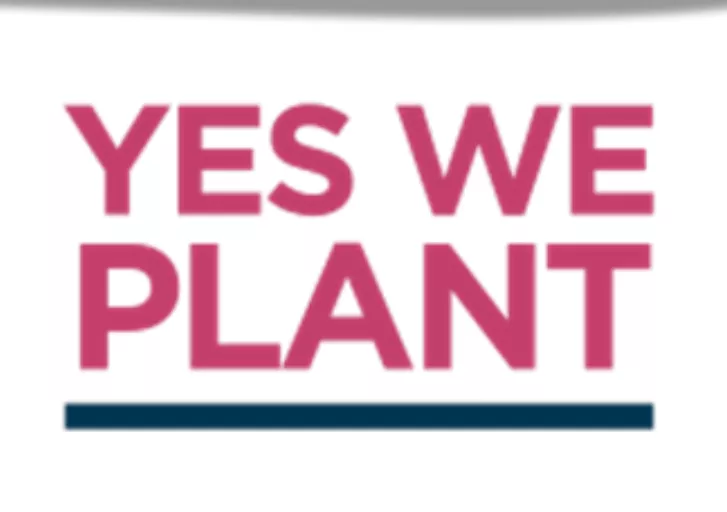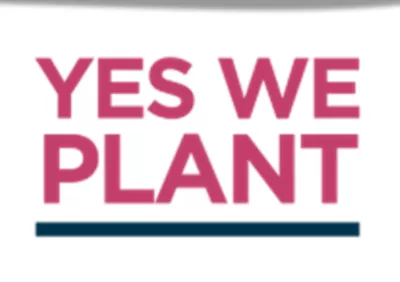Summary
The ‘Yes We Plant’ programme, launched at the initiative of Céline Tellier, Minister for the Environment, Nature, Forest, Rural Affairs and Animal Welfare of Wallonia (Belgium), set itself the target in 2020 of planting one million trees or 4 000 km of hedgerows by 2024.
The aim was to safeguard Wallonia's biodiversity, as provided for in the Regional Policy Declaration. ‘Yes We Plant’ encourages everyone to get involved in a planting project (citizens, associations, businesses and local authorities) and provides them with personalised support.
Three years on, more than a million trees and 3 000 km of hedges have been planted or are in the process of being planted.
Results
By the end of 2023, more than 3 000 km of hedges had been planted or committed to, alongside 1 210 353 trees within the current legislative period (2019-2024).
Media coverage of various planting projects highlights that the momentum is well underway, with active participation from all target groups (businesses, farmers, individuals, municipalities, schools, etc.) during the 2023-2024 planting season. All target groups are involved in the tree planting initiative and in hedge planting.
Efforts include creating a plant charter, involving new producers while supporting existing ones, providing documentation on alternatives to planting, consolidating information on a website, and offering guidance for planting to all target groups.
Additionally, there is a platform to connect individuals seeking to participate in planting work with others in need of labour, and a cultivation contract for providing large quantities of hedge plants.
Resources
Documents
Context
Wallonia is home to 7 725 native species, but almost a third of these are threatened or in danger of extinction. Biodiversity is vital to climate resilience and strengthening it is essential. Yes We Plant aims to counterbalance the situation and make biodiversity more robust in the face of the consequences of climate change. To achieve these goals, the Minister for the Environment, Nature, Forest, Rural Affairs and Animal Welfare requested the creation of a multisectoral task force focusing on key strategies. This task force prioritised simplifying administrative processes and increasing funding attractiveness for tree planting subsidies. Additionally, it aimed to support the agricultural sector by providing resources, guidance and tailored communication through an Agriculture-Biodiversity-Climate framework. The task force also emphasised the dissemination of technical information and the creation of tracking mechanisms for trees planted via dedicated online platforms. Moreover, it sought to stabilise the plant production sector to ensure a consistent supply of plants for public projects.
Objectives
To plant 4 000 km of hedges and/or 1 000 000 trees in Wallonia as one of the flagship biodiversity measures of the Regional Policy Declaration 2019-2024, potentially extending beyond that timeframe. This ambition aligns more broadly with the EU biodiversity strategy for 2030, including notably the aim to plant 3 billion trees by 2030 and enhance the presence oftrees and hedges within agricultural spaces.
Activities,key actors, and timeline
The multisectoral task force created to lead the efforts identified 10 sectors for analysis that could respond to the different needs of the actors involved. Each of these sectors had dedicated leaders forming working groups, engaging a range of different actors, such as farmers, schools and businesses. The working groups conducted SWOT analyses to pinpoint issues and generate recommendations. The insights from these analyses facilitated the identification of primary barriers which should be tackled to achieve the Yes We Plant programme’s goal: shortages of plants (seeds and producers), maintenance challenges in terms of time and cost, lack of guidance across different audience segments, the need for centralised communication and information, gaps in financial support for planting efforts, the necessity of tools fostering connections between volunteer planters and landowners, and the need for legislative adjustments concerning protection and subsidies. Based on the recommendations stemming from these analyses, 16 action sheets were formulated. These actions were meticulously designed to overcome barriers and leverage opportunities, representing a collective effort that culminated in the creation of the hedge task force’s operational programme, which was approved by the Walloon government on 1 April 2021. This comprehensive programme encompasses various strands of activity, including raising awareness about planting initiatives, structuring the supply chain, strengthening financial mechanisms, and adapting regulatory frameworks to better support its initiatives. The programme aims to bridge gaps, enhance planting practices, and foster legislative and financial frameworks that support sustainable and diverse planting initiatives. It represents a concerted effort across multiple sectors and stakeholder groups to achieve collective environmental goals.
Success factors/lessons learnt
Working collaboratively with all stakeholders in a bottom-up approach proved effective for this initiative. The operational programme, implemented through engaged and competent working groups, fostered a collective dynamic. This involved gatherings to share knowledge, promoting integration while sustaining momentum for the programme’s implementation. Upgrades across the entire production, advisory, subsidy and planting chain have been key to ensuring the sustainability of the actions. Extending subsidies beyond the current legislative term will ensure continued progress, which is essential for restoring biodiversity and tackling climate disruptions. Regular steering committee meetings ensure smooth operational progress and give the possibility to monitor actions and outcomes to provide crucial insights for future strategies.
Contacts
Arnaud Stas, arnaud.stas@swp.wallonie.be, and William Ortmans, william.ortmans@spw.wallonie.be

